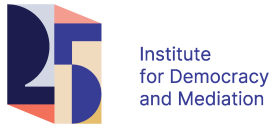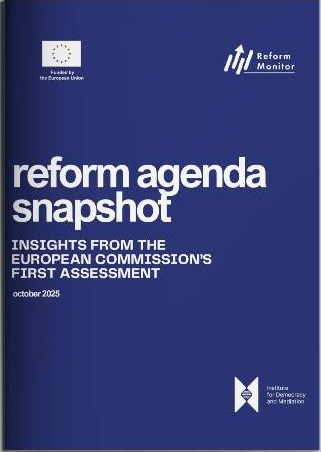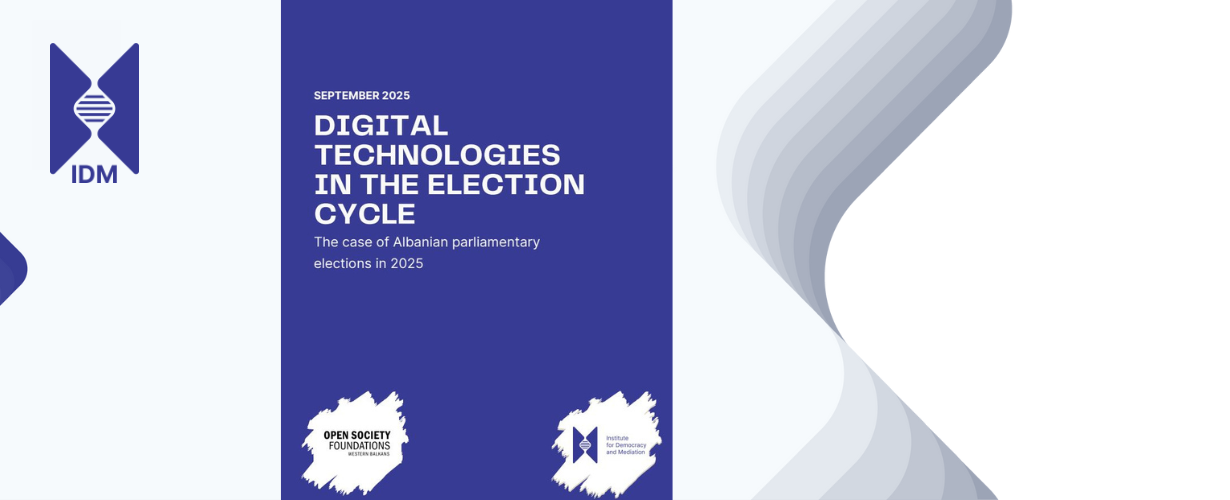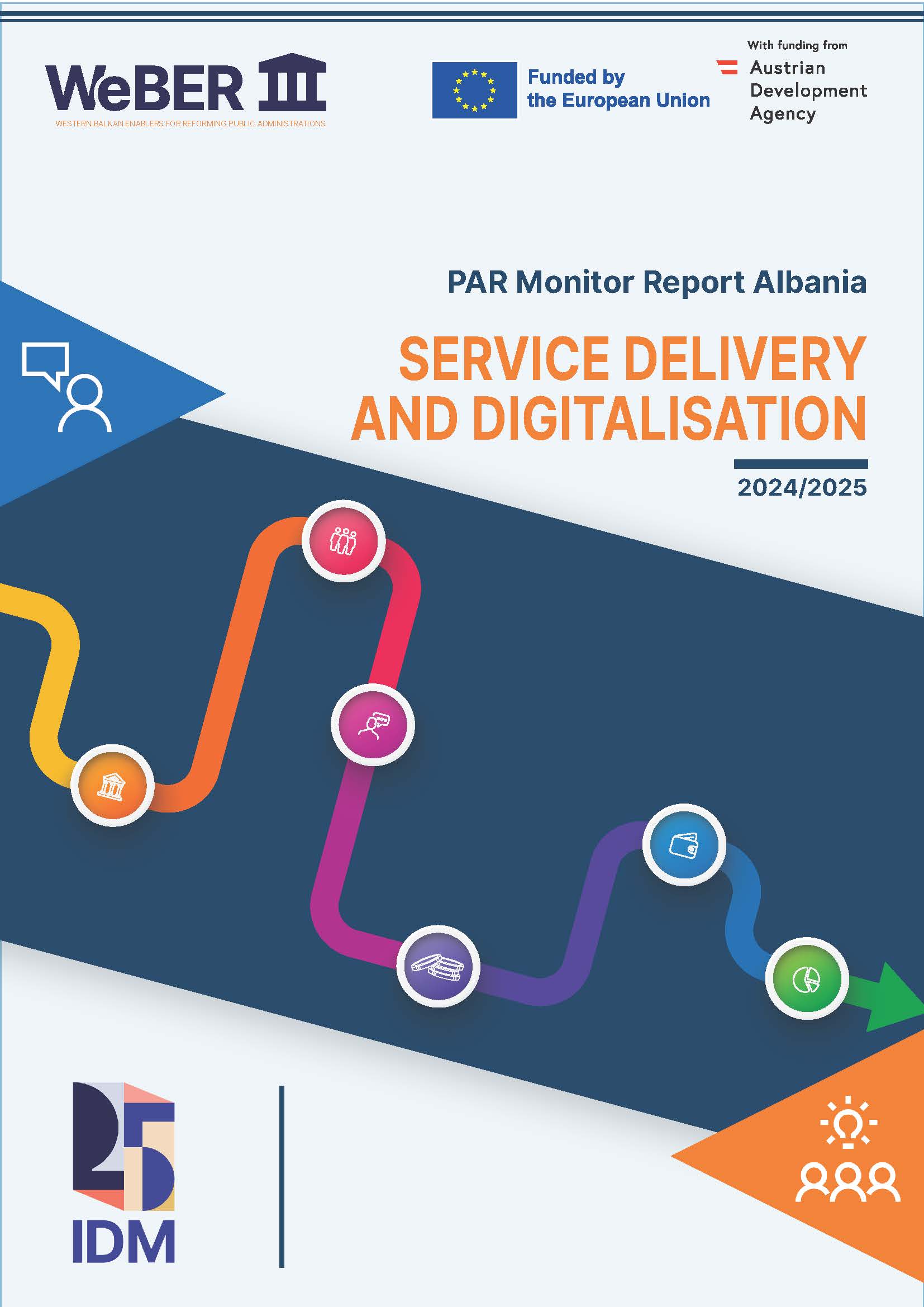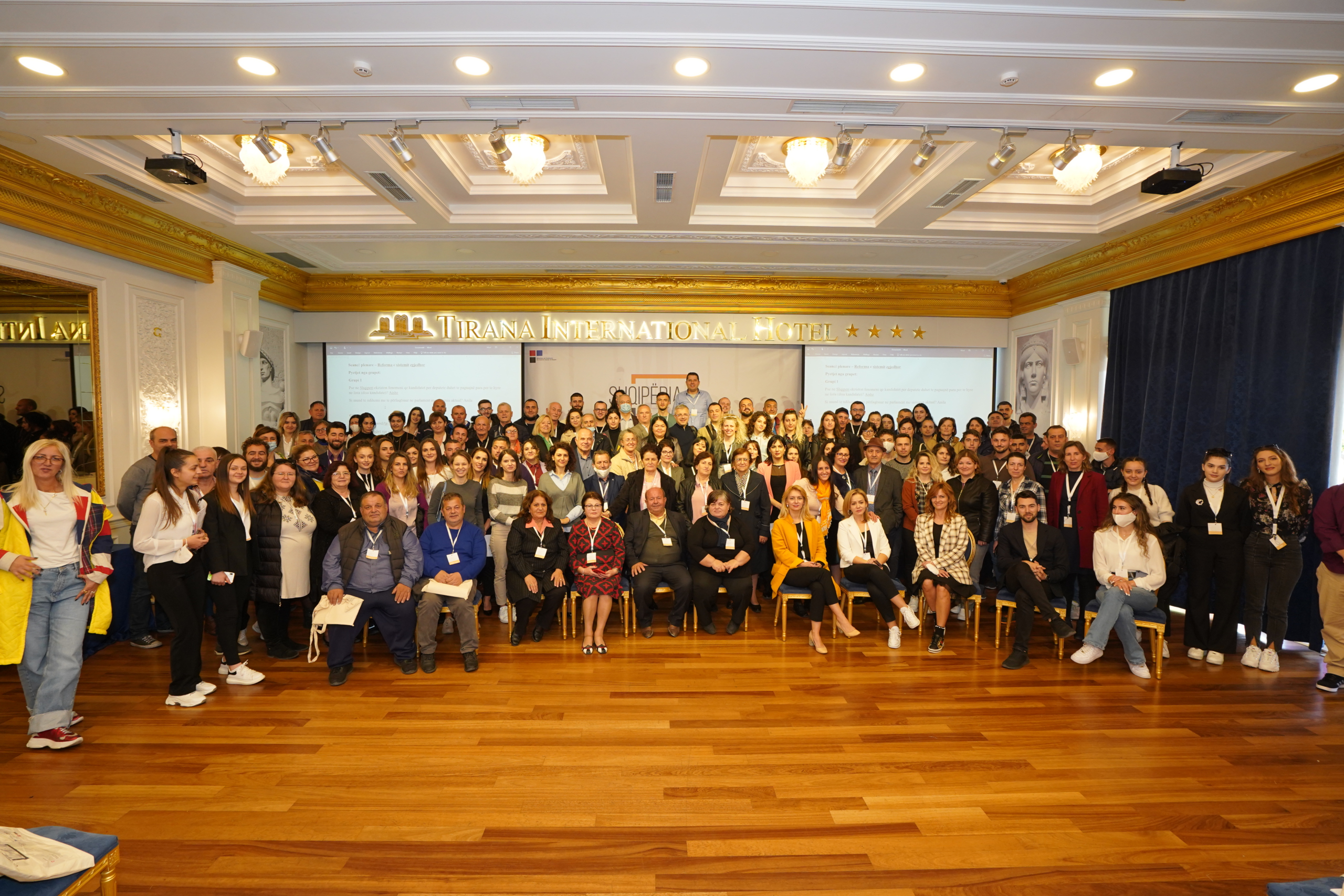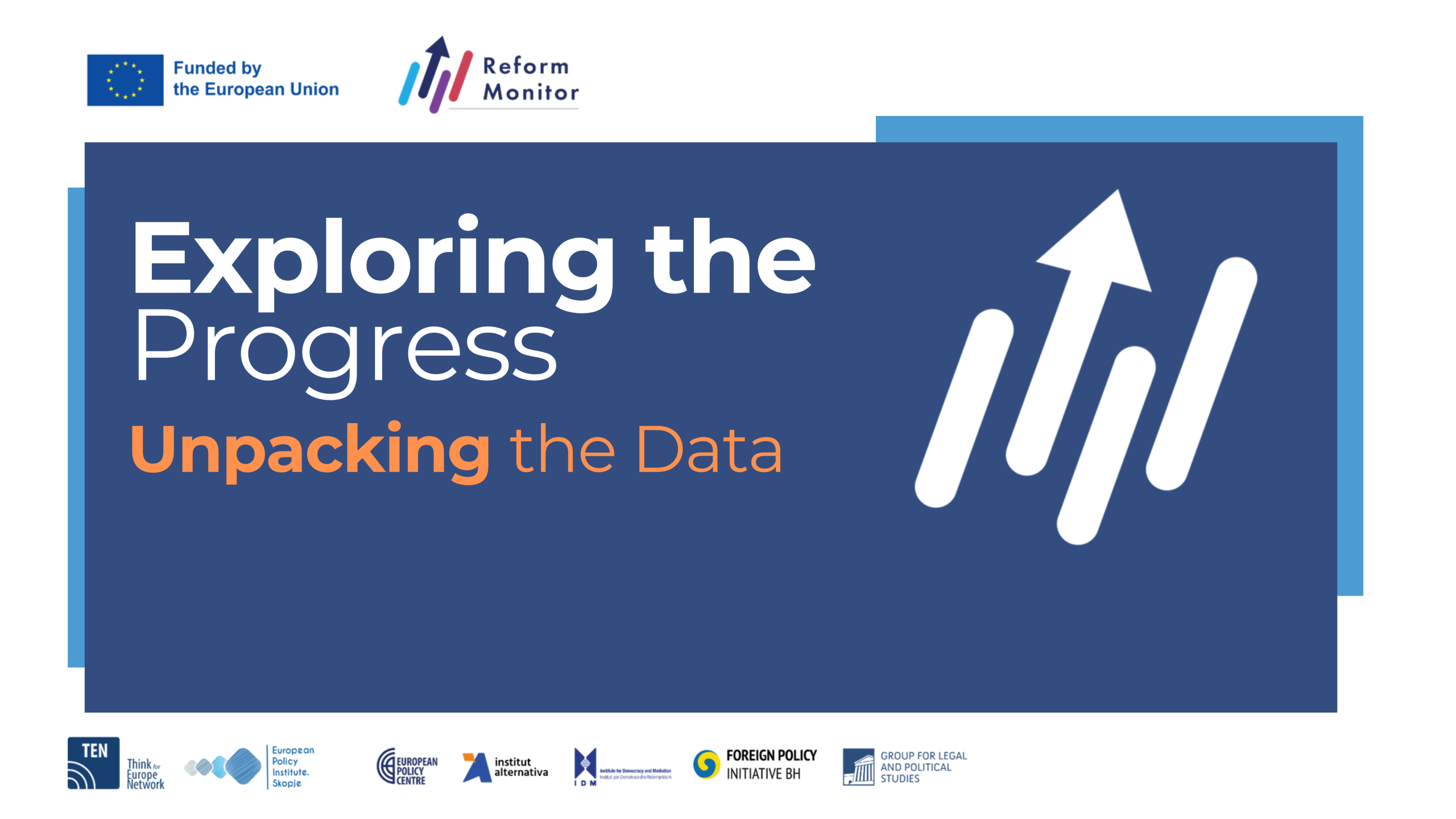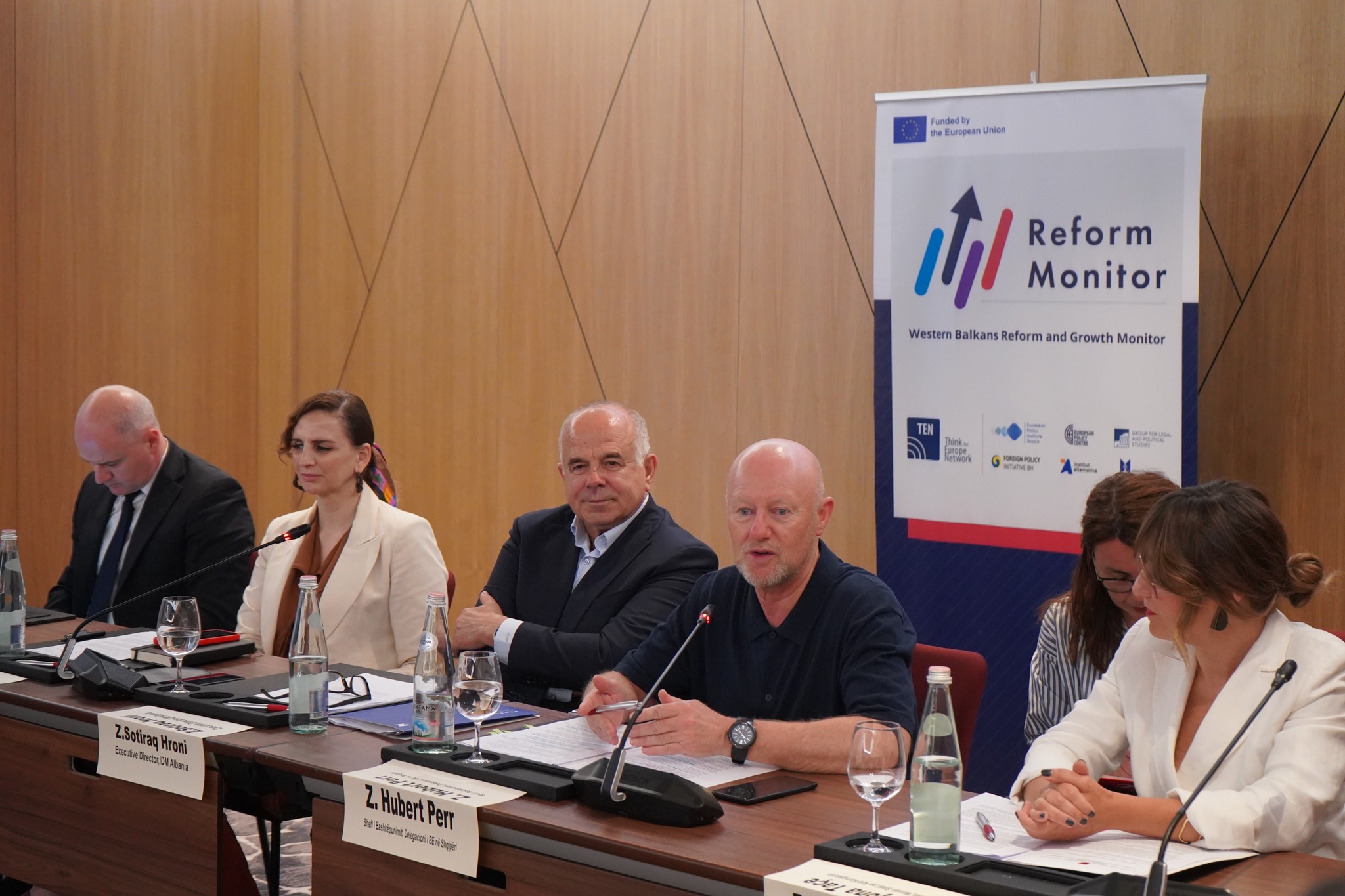Shqipëria n’Kuvendim: The first national deliberative democracy exercise
Tirana, November 2021 – For the first time in Albania, about 110 citizens from across the country gathered in the largest exercise of deliberative democracy “Shqipëria n’Kuvendim*” held from 18th to 21st of November 2021, in Tirana. This social experiment is a unique form of public consultation that combines techniques of public opinion research and public deliberation to reveal what public opinion would be on a particular issue if citizens were given a chance to become more informed. For the implementation of this exercise, IDM has been in close consultation with the Center for Deliberative Democracy at Stanford University (USA) and specifically with the authors of the model Prof. James Fishkin and Dr. Alice Siu.
During the opening ceremony of “Shqiperia n’Kuvendim” held on November 18th, the Speaker of the Parliament, Ms. Lindita Nikolla noted that the “deliberative polling adds value to Albania’s democracy, by enabling citizens to exchange competing views and promote a democratic culture of communication. This activity is an opportunity to reiterate the Assembly’s objective to increase transparency and access of the public, citizens, and the media to the parliamentary activity.”
In his speech, Mr. Adrian Maître, the Swiss Ambassador, drew comparisons to Swiss democracy when describing the exercise’s promotion of “informed deliberation on important policy issues and emphasized the importance of citizen participation and engagement for democracy.”
NDI Albania’s parliamentary advisor Mr. Rinor Beka underlined the value the deliberative poll adds “to the citizen outreach and consultation processes, by providing a venue where citizens can think and discuss important and sensitive issues in a competing but civil discussion.”
Prof. James Fishkin, Director of the Stanford Center for Deliberative Democracy and one of the academics that developed and tested the deliberative polling methodology, explained “that in a deliberative poll the citizens deliberate with an open mind on the basis of balanced briefing materials and in civil mutually respectful discussions with others with whom one may disagree. I believe this process will create representative data of what the people of Albania would really think about these issues and will also contribute to creating more informed citizens.”
Prof. Alice Siu, Associate Director of the Stanford Center for Deliberative Democracy, in her address, encouraged the participants to see the benefits of this exercise, to learn from each other, and understand what is so wonderful in discussing what makes you different from one another.
In his remarks, Mr. Sotiraq Hroni, Executive Director, noted that “public trust in any institution depends mainly on a reliable and realistic relationship with the citizens. This exercise demonstrates how important are these communication processes with the citizens.”
Deliberation days
For four days in a row, 110 randomly selected participants from a sample of 1,200 pre-surveyed citizens, deliberated on issues such as parliamentary oversight and citizen participation, internal democracy of political parties, electoral system reform, environmental protection, and economic immigration. They were provided with the opportunity to discuss the issues with fellow participants in moderated small groups based on impartially written briefing materials provided beforehand, and the chance to question
balanced panels of experts on each topic. About 20 panelists and 15 moderators were actively involved and interacted with the participants.
Here are some of the participants’ testimonies stated in the evaluation forms after the event:
- “Shqiperia n’Kuvendim” is an excellent way to discuss and clarify our opinions on issues that affect us in real life.”
- “I am satisfied with the event, but I would like these activities to be not a one-time event and to find a way for our voice to really reach the parliament.”
- The activity provided us with valuable information on the topics and the opportunity to consider different perspectives to the problems posed and discuss them with specialists in the field.
In the upcoming weeks, the IDM experts will draft the results report by comparing the data that were collected across three events: the national survey administered in October 2021, the survey data of the participants after the event and those of the control group. These results will serve to see the impact on attitudes and perceptions that consultation with citizens can bring in an informed way. Also, the results are expected to strengthen the civic engagement mechanisms in the parliamentary activity and decision-making processes in Albania. IDM will share the findings with the policymakers, the public, and the media.
View here:
- Briefing booklet
- Agenda Alb / Eng
- Flyer on Deliberative Polling Methodology
- How did it all start: https://youtu.be/P_VxeYPi1A8
- Opening Ceremony “Shqiperia n’Kuvendim”
Photos from “Shqiperia n’Kuvendim” can be found here: https://flic.kr/ps/3XVUJu
Media partners coverage: A2CNN – https://bit.ly/31JU8UY
*This activity is held by IDM in the framework of PACEP project, in consultation with the Center for Deliberative Democracy (CDD) at Stanford University (USA). “Support to Parliament and Civic Education in Albania” (PACEP), is a project of the Agency Swiss Agency for Development and Cooperation (SDC), implemented by the National Democratic Institute (NDI).
